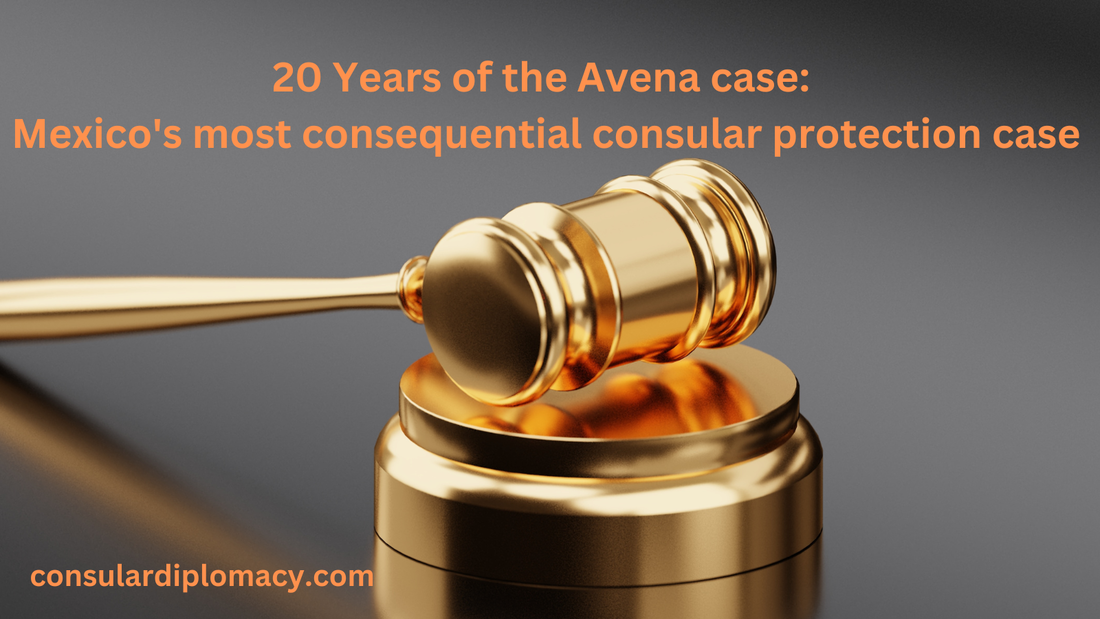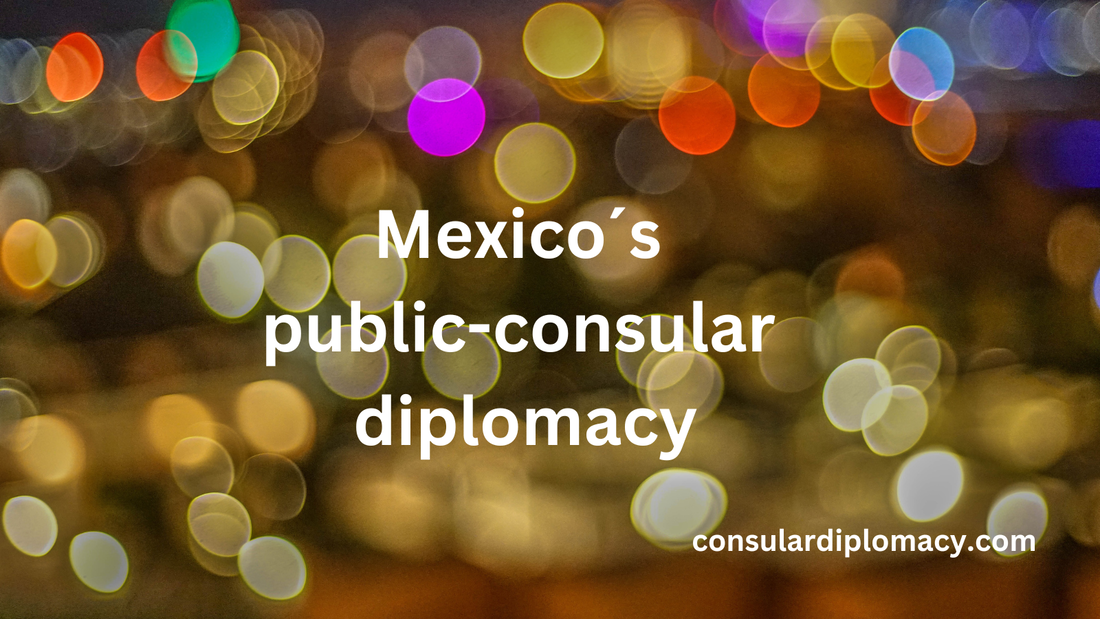 In November 2022, I had the fantastic opportunity to attend the Summit on Digital Diplomacy and Governance organized as part of the 20th anniversary of the DiploFoundation. The main takeout of the superb conference is that, as in the past, technology is changing diplomacy very fast. Diplomats and ministries of foreign affairs (MFAs) need not just to try to keep up with the changes but be prepared to take advantage of the opportunities it brings and protect against the threats it presents. As it was a decade ago with the appearance of social media, nowadays, diplomats and people who perform diplomatic functions must be aware of the rapid changes happening in the digital realm. From the rise and consolidation of TechPlomacy (Technology Diplomacy) and Digital Foreign Policy to the upcoming arrival of quantum computers and the fast-changing face of Artificial Intelligence, technology is changing diplomacy and the world´s geopolitics. The adaptation of diplomacy to technological revolutions is not new. To learn more about the topic, make sure you visit Diplo´s interactive page on the History of Diplomacy and Technology or watch the very educational and informative Masterclass Diplomacy and Technology: a Historical journey, which at the end of each chapter has a great surprise. Diplo´s uniqueness There are few places or institutions in today´s world that bring together specialists in ICT and internet governance and practitioners of diplomacy in such a dynamic way like Diplo does. It has achieved this perfect communion through consistency, innovation, and total commitment to capacity building with a particular focus on small and developing states. Another marvelous aspect of Diplo is that the Summit and all events it organizes have an incredible array of participants from all corners of the world, with a considerable proportion of women and the Global South. Furthermore, many of the attendees were Diplo´s Alumni, so the camaraderie of the Summit was just unbelievable. I even learned how to dance Jerusalema! Summit on Digital Diplomacy and Governance. The Future of Diplomacy: From Geopolitics to Emerging Technologies. According to Diplo, the Summit had 33 sessions, 68 speakers, and 510 participants (DiploFoundation, 2022). Here is a video about it. For a summary of the event, read the Digwatch Newsletter, Issue 75 (December 2022). One of the highlights was the idea that digital diplomats “need to acquire new skills in digital governance: An understanding of the new geopolitics and geo-economic landscape, knowledge of the technology fuelling these developments, and the skills to engage with other actors, including tech companies, academia, and civil society” (Geneva Internet Platform, 2022, p. 6). For a complete summary of the meeting, visit Highlights from the Summit on Digital Diplomacy and Governance To learn more about the participants' perspectives, Diplo created a series of videos and messages titled “Summit in a minute”, which I recommend watching/reading. You will see the significant diversity of the Summit´s attendees and their broad perspectives. Opportunities for learning about new technology and its impact on diplomacy. The future is happening now, as Tech giants and digital nomads are working hard to code new technologies and apps that will transform the world. In the last decade, we have seen the disruptive power of social media. The coming changes will likely have a more significant impact, from automation affecting millions of jobs and livelihoods to data mining and artificial intelligence. Therefore, I encourage diplomats to ride the wave of technological changes before it is too late. Fortunately, DiploFoundation has many tools and options for learning and engaging. Here are some courses offered by Diplo:
You can also read my blog posts about the subject here:
REFERENCES: DiploFoundation. (2022). Highlights from the Summit on Digital Diplomacy and Governance. Geneva Internet Platform (2022) Digwatch Newsletter, Issue 75 (December 2022). DISCLAIMER: All views expressed on this blog are that of the author and do not represent the opinions of any other authority, agency, organization, employer or company.
0 Comments
 This blog post is dedicated to all the Mexican diplomats and U.S. legal teams that work with death penalty cases involving Mexicans, especially in memoriam of Imanol de la Flor Patiño, an exemplary person. Today, twenty years ago, Mexico sued the United States in the International Court of Justice for violations of the Vienna Convention on Consular Relations (VCCR), specifically Article 36, which provides the right of consular notification to foreign citizens detained abroad. The case concerning Avena and other Mexican nationals against the United States was a milestone in Mexico's assistance to its citizen overseas, particularly in the United States. In March 2004, the Court rendered its judgment against the United States, thus becoming an instrumental decision for the consular protection of the rights of Mexicans arrested north of the border and also for the 52 named cases (Gómez Robledo 2005, p. 183). The Avena case is Mexico's most consequential consular protection case because it overhauled the assistance consulates provide to distressed citizens and raised the relevance of consular affairs inside the Ministry of Foreign Affairs. Background In 1976, the United States Supreme Court reinstated the death penalty. In 1993, a Mexican was executed in Texas; he was the first Mexican put to death after the reimposition of capital punishment. His execution was a big issue in Mexico which generated "more than a hundred condemnatory articles in the [Mexican] press, and pronouncements by not only the minister of Foreign Affairs but the President [of Mexico]" (González de Cossío, 1995, p. 102). As a result, Mexico took a series of actions that helped prepare for the presentation of the Avena case in 2003. One immediate step was to interview all Mexicans on death row. As part of the process, consular officials identified a systemic violation of the right to consular notification in capital cases (González Félix, 2009, p. 218-220). In addition, in 1997, Mexico asked the Inter-American Court of Human Rights for an Advisory Opinion (OC-16/99) about the consular notification. It was a multilateral effort and was not bidding; thus, it was not a direct confrontation with the U.S. The Court published its opinion in 1999, stating that foreign individuals have certain rights under the VCCR, such as the rights of information, consular notification, and communications. Besides, it determined that the sending state and its consular officers also have the right to communicate with its detained nationals (Cárdenas Aravena, n.d). In 2000, the Ministry of Foreign Affairs of Mexico launched a new program to assist Mexicans on death row in the United States. This program complemented the legal training that some Mexican diplomats received as part of the official collaboration with the University of Houston that started in 1989 (see, for example, De la Flor Patiño, 2017 and number 109 of the Revista Mexicana de Política Exterior). Enhancing consular protection With the arrival of President Fox in 2000, Mexico's government stepped up its engagement with the Mexican community in the United States intending to enhance consular protection. Mexico started negotiating a bilateral migration agreement with the recently inaugurated U.S. president, George W. Bush. The government established the Presidential Office for Migrants Abroad, promoted the Mexican Consular ID Card, and created and expanded consular programs such as the Binational Health Week and the Ventanilla de Salud (Health Desk). In early 2002, the country ratified the Optional Protocol concerning the Compulsory Settlement of Disputes of the VCCR, to which the United States was also a party (González Félix, 2009, p. 221-222), thus offering a binding conflict resolution mechanisms. Meanwhile, the number of Mexicans sentenced to death and executed by U.S. authorities increased, creating an uproar in Mexico. In January 1995, there were 23 Mexicans sentenced to death in the U.S. (González de Cossío, 1995, p. 108). The ICJ's Avena Judgment decision of 2004 included 51 cases. From 1997 to 2002, four nationals were put to death in Texas and Virginia (Death Penalty Information Center, n/d). Even President Fox suspended a trip to president's Bush ranch in Texas in August 2002 as a protest of the execution of a Mexican in the same state (Gómez Robledo 2005, p. 178-179). Meanwhile, Paraguay in 1998 and Germany in 1999 requested the intervention of the ICJ regarding the Breard and LaGrand cases related to violations of consular notification rights by U.S. authorities. In Paraguay's case, the proceedings were stopped after the execution of its national in 1998, while the German brother's case continued even after both were put to death in 1999. Both instances were significant for Mexico's consular protection of its nationals on death row. According to Gómez Robledo (2005), after LaGrand's ICJ decision in June 2001, Mexico tried to work with the United States regarding the Mexicans sentenced to death whose rights were violated by local authorities by denying the consular access with no avail (p. 178-179). The Avena Judgment and its repercussions In January of 2003, in a bold action, Mexico presented in the ICJ the Avena case against the United States for violations of Article 36 of the VCCR regarding the death penalty cases of 54 Mexicans in the United States (Covarrubias Velasco, 2010, p. 133-134). The case had significant implications and had very high visibility in Mexico, particularly at a time when the migration to the United States grew very fast, passing from 4.3 million in 1990 to 9.1 million in 2000 (Rosenbloom & Batalova, 2022). After more than a year, which included one provisional measure, on March 31, 2004, the ICJ issued its judgment. In summary, "the ICJ concluded that the United States had violated its obligations under the Vienna Convention [on Consular Relations] by failing to properly notify Mexican nationals of their rights to have Mexican consular officials notified of their arrest, which in turn deprived Mexican consular officers of their right under Article 36 to render assistant to their detained nationals "(Garcia, 2004, p. 14). More significantly, "the Court ordered the United States to provide judicial review to each and every one of the fifty-one Mexicans named in the suit whose Article 36 rights had been violated, and to determine whether the failure to timely advise the consulate of their arrests resulted in "actual prejudice to the defendant." Importantly, the United States judiciary also had to review and reconsider the convictions and sentences as if the procedural default did not exist" (Kuykendall and Knight, 2018, p. 808-809). It was a massive victory for the rights of the Mexicans on death row, as it was mandatory for the U.S. government. The Judgment bound the U.S. to the 51 Mexicans with capital sentences, regardless of the eventual outcome of each case. The Avena case was a milestone for Mexico's consular protection because:
However, not all has been good news. Regarding the demand by the ICJ court that the U.S. review and reconsider the cases of the 51 Mexicans named in the Avena Judgment, the federal government has faced internal challenges. The most important of these was the Supreme Court's decision regarding the case of Medellin vs. Texas (p. 491). In 2008, the Court indicated that the Vienna Convention on Consular Relations is not a self-execution treaty, therefore, the U.S. Congress must legislate so it could become part of the U.S. law (Medellin vs. Texas (p. 491-492). Regardless of U.S. authorities' continuous breach of their international obligations, there have been crucial domestic adjustments. In some cases, State courts decided to review the death penalty cases based on the Avena Judgment and provided relief to Mexicans on death row. In addition, some states "have at least some statutory requirements concerning consular notification…[and] beginning in December 2014, the Federal Rules of Criminal Procedures now provide that at an initial appearance, the judge must inform the defendant" (Kuykendall and Knight, 2018, p. 824) that if they are foreigners, they have the right to contact their consulates. Besides, since the start of the Avena case in 2003, the support for the death penalty in the U.S. has been declining ever so slowly. In conclusion, the Avena case was Mexico's most consequential consular protection case, which enormously influenced the emergence of the country's public-consular diplomacy. References Cárdenas Aravena, C. (n.d). La Opinión Consultiva 16/99 de la Corte Interamericana de Derechos Humanos y la Convención de Viena de Relaciones Consulares. Covarrubias Velasco, A. (2010). Cambio de siglo: la política exterior de la apertura económica y política. México y el mundo: Historia de sus relaciones exteriores. Tomo IX. El Colegio de México. Death Penalty Information Center, n.d. Execution of Foreign Nationals [in the United States. De la Flor Patiño, I. (2017). Pena de muerte en el condado de Harris, una mirada a través del cristal de la Universidad de Houston. Revista Mexicana de Política Exterior (109), 99-123. Gallardo Negrete, F. (2022, April 27). La pena de muerte en México, una historia constitucional. Este País. Garcia, M. J. (2004, May 17). Vienna Convention on Consular Relations: Overview of U.S. Implementation and International Court of Justice (ICJ) Interpretation of Consular Notification Requirements. Congressional Research Service. Gómez Robledo V., J. M. (2005). El caso Avena y otros nacionales mexicanos (México c. Estados Unidos de América) ante la Corte Internacional de Justicia. Anuario Mexicano de Derecho Internacional Vol. V, 173-220. https://revistas.juridicas.unam.mx/index.php/derecho-internacional/article/view/119/177 González Félix, M. A. (2009). Entrevistas: Pasajes Decisivos de la Diplomacia. El Caso Avena. Interview by C. M. Toro. Revista Mexicana de Política Exterior (86), 215-223. June. González de Cossío, F. (1995). Los mexicanos condenados a la pena de muerte en Estados Unidos: la labor de los consulados de México. Revista Mexicana de Política Exterior (46) 102-125. Spring. Kuykendall, G. & Knight, A. (2018). The Impact of Article 36 Violations on Mexicans in Capital Cases. Saint Louis University Law Journal 62(4), 805-824. Rosenbloom, R. & Batalova, J. (2022, Oct. 13). Mexican Immigrants in the United States. Migration Policy Institute. DISCLAIMER: All views expressed on this blog are that of the author and do not represent the opinions of any other authority, agency, organization, employer or company. I am extremely happy to share with you the article Beyond Traditional Boundaries: The Origins and Features of the Public-Consular Diplomacy of Mexico, published in the newest edition of the Journal of Public Diplomacy. You can read it or download it in this link: https://www.journalofpd.com/_files/ugd/75feb6_82201616bab74db6b1f877c8deb734d6.pdf Besides, if you are interested in the origins of Mexico's consular diplomacy, you can read my previous post here. You can also read additional posts about consular diplomacy, such as:
DISCLAIMER: All views expressed on this blog are that of the author and do not represent the opinions of any other authority, agency, organization, employer or company. |
Rodrigo Márquez LartigueDiplomat interested in the development of Consular and Public Diplomacies. Archives
May 2024
Categories
All
|

